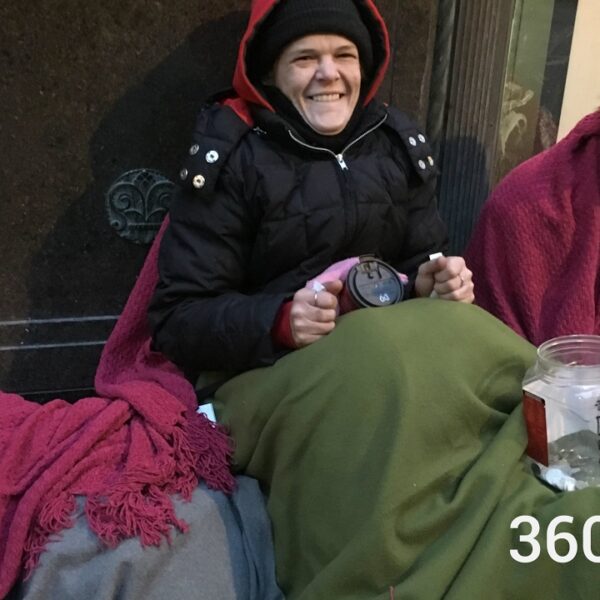A federal appeals court ruled on June 2 that it will continue to stay a lower court’s ruling to overturn the federal eviction moratorium as the legislation faces a legal onslaught.
The U.S. District Court of Appeals for the District of Columbia is the highest court to date that agreed to leave the moratorium in place. It also noted in its decision that the Department of Justice—which appealed the ruling to overturn the moratorium—is “highly likely to succeed on the merit of its claims.”
“This is good news for the millions of renters who remain stably housed because of the protections under the CDC eviction moratorium,” said Diane Yentel, President and CEO of the National Low Income Housing Coalition. “Currently, more than 6 million renter households report being behind on rent and are at heightened risk of eviction, almost twice the number of homeowners who lost their homes to foreclosure in the 2008 financial crisis.”
In response to the ruling, a group led by the Alabama Association of Realtors urged the Supreme Court to immediately take the case and end moratorium protections for renters. The group wrote in its response that “Congress never gave the [Center for Disease Control and Prevention (CDC)] the staggering amount of power it now claims.”
The CDC instituted the eviction moratorium in September 2020.
It prevents landlords from evicting tenants who can’t pay their rent because of the pandemic. It also requires renters to file a declaration of need with their landlord before the moratorium’s protections are valid.
According to the 35-page filing, the group argued that the moratorium essentially shifted the financial burden of COVID-19 “from the nation’s 30 to 40 million renters to its 10 to 11 million landlords – most of whom are individuals and small businesses.” The filing also contends that landlords across the country have lost a collective $13 billion because of the policy.
Yentel noted that “if [landlord groups] spent even a quarter of [their] effort instead convincing landlords to apply for and accept the money, maybe they wouldn’t feel such a pressing need to evict low-income tenants who fell behind on rent during the global pandemic.”
While the eviction moratorium applied to federal public housing, it had no jurisdiction over state housing policies.
In response, several states issued additional protections for renters, ranging from rent and utility assistance programs to providing free and full legal representation during eviction proceedings.
However, landlords in many states found ways to evict tenants regardless of federal or state law. Landlords in Kansas were able to evict tenants by allowing landlords to file proceedings and extending the date of the hearing until after the ban is lifted. Mother Jones found the song remains the same in East Oakland, California, where landlords have resulted to harassing their tenants until they leave. Some examples include shutting off water and locking out some tenants, according to the report.
To help keep people who face job loss or reduced hours because of COVID-19, the federal government provided $46.5 billion in rental and utility assistance programs. The legislation was intended to pay landlords on behalf of tenants, but many landlords refused to accept the payments.
Meanwhile, research found that fewer landlords are accepting housing vouchers following the pandemic. This could jeopardize President Joe Biden’s aim to provide more than 200,000 housing vouchers in his 2021 budget.
The states are also moving in opposite directions as well. For example, California extended its moratorium throughout 2021, while Colorado ended its moratorium in April. The decision put over 181,000 Colorado households at risk of eviction, with a collective debt of $765 million.
The court system seems to be at odds with the moratorium as well. Back in February, a federal judge in Texas ruled that the moratorium is unconstitutional, arguing that the government cannot claim a new power that it had not previously used in its history.
Then in March, a federal judge in Ohio blocked the federal eviction ban under a provision of the federal Administrative Procedures Act known as Section 706. The section allows a court to invalidate a law that it considers to be arbitrary or capricious. However, the ruling only impacted the parties in the case and residents who live in buildings owned by the National Association of Homebuilders.
Yentel said that if these concerns are not enough, the federal eviction ban is set to expire on June 30.
While it is not yet clear whether the Biden administration will renew the order, Yentel said many lives might be irreparably harmed if the order is allowed to expire.
“Evictions risk lives, push families deeper into poverty, and further strain our public health systems that are working to vaccinate as many people as possible to contain the virus,” Yentel said. “The impact would be felt immediately and for years to come, as evictions harm everything from physical and mental health to economic mobility. Because evictions predominantly harm people of color, disproportionately Black women, the CDC moratorium’s expiration could deepen racial disparities.”













